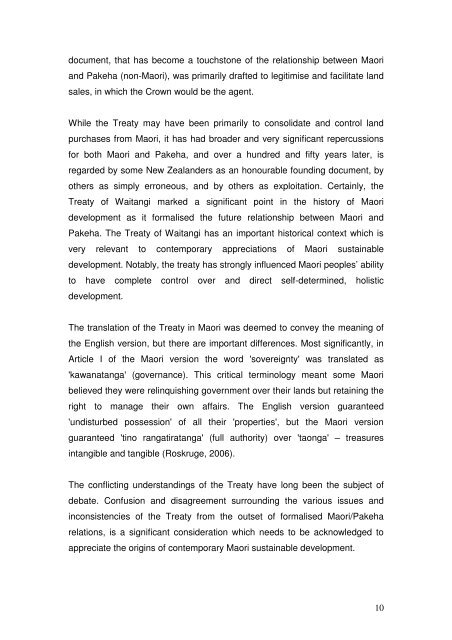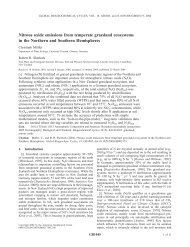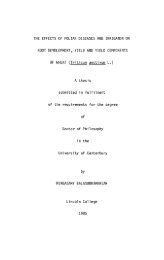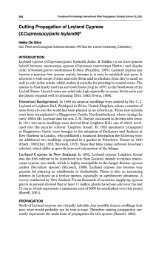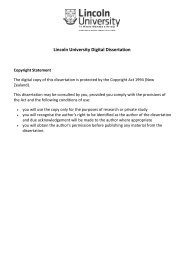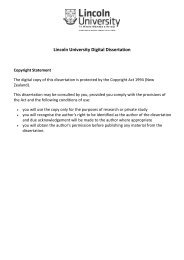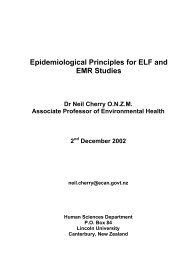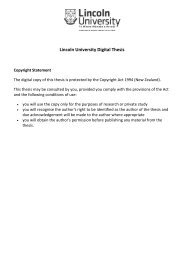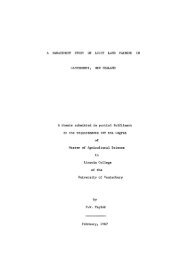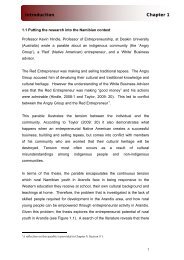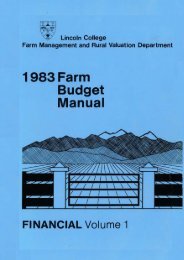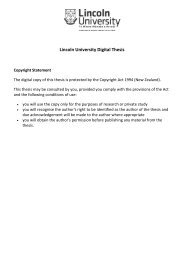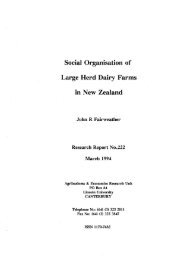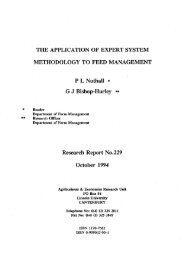Lincoln University Digital Dissertation - Lincoln University Research ...
Lincoln University Digital Dissertation - Lincoln University Research ...
Lincoln University Digital Dissertation - Lincoln University Research ...
You also want an ePaper? Increase the reach of your titles
YUMPU automatically turns print PDFs into web optimized ePapers that Google loves.
document, that has become a touchstone of the relationship between Maori<br />
and Pakeha (non-Maori), was primarily drafted to legitimise and facilitate land<br />
sales, in which the Crown would be the agent.<br />
While the Treaty may have been primarily to consolidate and control land<br />
purchases from Maori, it has had broader and very significant repercussions<br />
for both Maori and Pakeha, and over a hundred and fifty years later, is<br />
regarded by some New Zealanders as an honourable founding document, by<br />
others as simply erroneous, and by others as exploitation. Certainly, the<br />
Treaty of Waitangi marked a significant point in the history of Maori<br />
development as it formalised the future relationship between Maori and<br />
Pakeha. The Treaty of Waitangi has an important historical context which is<br />
very relevant to contemporary appreciations of Maori sustainable<br />
development. Notably, the treaty has strongly influenced Maori peoples’ ability<br />
to have complete control over and direct self-determined, holistic<br />
development.<br />
The translation of the Treaty in Maori was deemed to convey the meaning of<br />
the English version, but there are important differences. Most significantly, in<br />
Article I of the Maori version the word 'sovereignty' was translated as<br />
'kawanatanga' (governance). This critical terminology meant some Maori<br />
believed they were relinquishing government over their lands but retaining the<br />
right to manage their own affairs. The English version guaranteed<br />
'undisturbed possession' of all their 'properties', but the Maori version<br />
guaranteed 'tino rangatiratanga' (full authority) over 'taonga' – treasures<br />
intangible and tangible (Roskruge, 2006).<br />
The conflicting understandings of the Treaty have long been the subject of<br />
debate. Confusion and disagreement surrounding the various issues and<br />
inconsistencies of the Treaty from the outset of formalised Maori/Pakeha<br />
relations, is a significant consideration which needs to be acknowledged to<br />
appreciate the origins of contemporary Maori sustainable development.<br />
10


